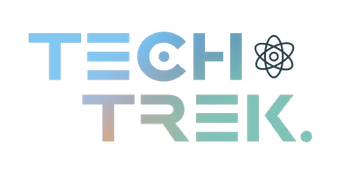Breaking Boundaries with High-Fidelity Quantum Computing
- TechTrek Admin

- Feb 5, 2025
- 4 min read
Updated: Apr 22, 2025
By George Cavanna
The Lawrenceville School, NJ
Moore’s law states that the speed and capability of computers can be expected to double every two years, as a result of increases in the number of transistors on a microchip. In our modern age, humanity is reaching a point where computers could not be any more powerful. Thus, Moore’s law may reach its limit. The microchips and hardware of computers are getting so advanced and smaller that not much else can be done to advance them. But a new path may further push the limits of human technology. Quantum computers may be the next big advancement in our technology. Companies such as IBM, JP Morgan, and Google are building startups around this tech, and optimizing the power of these new machines. Quantum computers will likely be the gateway to new discoveries, and lead to big leaps in our technology.

All computers today use bits, transistors and logic gates to process information. These bits appear as 1’s and 0’s. Computers will use different combinations of these 1’s and 0’s to process. This is known as binary code. Quantum computers also use a special kind of bit called qubits. Quibits optimize a phenomenon called superposition. Superposition is a fundamental principle of both quantum mechanics and quantum physics. A qubit in superposition is in both the state of a 1 and 0 at the same time. You could explain superposition using coin flipping. When standing on the ground the coin is perceived as heads or tails (1 or 0). What side of the coin is the winning side in the air? We cannot know for certain, therefore the coin is facing both sides simultaneously in the air. Qubits until they are measured, are both 1’s and 0’s simultaneously. The phenomenon of superposition gives the qubits in quantum computers more processing power than regular bits.

Many companies are starting to invest in quantum computers. The flagship of these companies is Google. Google recently developed their quantum computer Sycomore. Sycomore boasts a 53 qubit setup which allows for a new level of processing, many times above supercomputers. In addition many car companies are starting to hypothesize that Quantum computers may be able to help optimize routes and reduce time between point A and point B. Particularly Volkswagen is trying to implement this new technology. The company IonQ used quantum computers to optimize the utilization of electrolysis (process of breaking water down into hydrogen and oxygen molecules). Quantum computers help research the most sustainable and environmentally friendly way to produce hydrogen molecules.
All these pros force the image that quantum computers are a no brainer investment. But these pros obscure the cons of quantum computers. Quantum computers, like any computer, are prone to errors and mistakes. What makes quantum computers different is that they are extremely susceptible to errors in the form of sound. To function properly, quantum computers need to be isolated at all times with no interruption. According to the MIT technology review, “unless noise can be tamed, a quantum computer will never surpass what a classical computer can do” (Brooks, 2024). In other words quantum computers are prone to instability due to noise. This leads to some people calling out the technology. In 2022 Haim Israel, who is the managing director of research at Bank of America, said that quantum computing will be “bigger than fire and bigger than all the revolutions that humanity has seen.”

Fortunately scientists have developed a high-fidelity quantum computing gate. This is a key component for executing precise quantum operations. Fidelity means how accurate or close the quantum state is to the ideal quantum state. This development is a step in the right direction for building reliable quantum computers. The new gates allow for higher accuracy in quantum computing and less error. The new gate showed a fidelity of 99.92% for a two-qubit device known as a CZ gate and 99.98% for a single-qubit gate. This makes quantum computers much more reliable and accurate, although this does not change the issue with sound. Yasunobu Nakamura, head director of RIKEN Center for Quantum Computing stated that, "By reducing the error rates in quantum gates, we have made more reliable and accurate quantum computations possible. This is particularly important for the development of fault-tolerant quantum computers, which are the future of quantum computing.” High fidelity quantum computing fixed a lot of the issues with quantum computing. This may lead to more companies investing in quantum computing, resulting in increased testing and even more improvements for the future. Quantum computing is the future of technology, opening the door to new possibilities and the advancement of the human race.
----Works Cited
RIKEN. (2024, November 22). Scientists develop novel high-fidelity quantum computing gate. Phys.org. https://phys.org/news/2024-11-scientists-high-fidelity-quantum-gate.html
Vallabh Shrimangale. (2024, January 17). Google’s Sycamore: Exploring the Power of Google’s Quantum Computer. Medium; The Quantastic Journal. https://medium.com/the-quantastic-journal/googles-sycamore-exploring-the-power-of-google-s-quantum-computer-266374339d54
Brooks, M. (2024, January 4). Quantum computing is taking on its biggest challenge: noise. MIT Technology Review. https://www.technologyreview.com/2024/01/04/1084783/quantum-computing-noise-google-ibm-microsoft/
Gossett, S. (2022, June 8). Applying Paradigm-Shifting Quantum Computers to Real-World Issues. Built In. https://builtin.com/hardware/quantum-computing-applications
Schneider, J., & Smalley, I. (2024, August 5). What is quantum computing? IBM. https://www.ibm.com/topics/quantum-computing
DOE Explains...Quantum Computing. (n.d.). Energy.gov. https://www.energy.gov/science/doe-explainsquantum-computing
%202_e.png)





Comments